Zero-Shot Reinforcement Learning from Low Quality Data
NeurIPS 2024
Scott Jeen\(^{\alpha}\), Tom Bewley\(^{\beta}\) & Jonathan M. Cullen\(^{\alpha}\)
\(^{\alpha}\) University of Cambridge \(^{\beta}\) University of Bristol
Motivation
- Training policies to (zero-shot) generalise to unseen tasks in an environment is hard! [1]
- Behaviour Foundation Models (BFMs) based on forward-backward representations (FB) [2] and universal successor features (USF) [3], provide principled mechanisms for performing zero-shot task generalisation
- However, BFMs assumed access to idealised (large & diverse) pre-training datasets that we can’t expect for real problems
- Can we pre-train BFMs on realistic (small & narrow) datasets?
Out-of-distribution Value Overestimation in BFMs
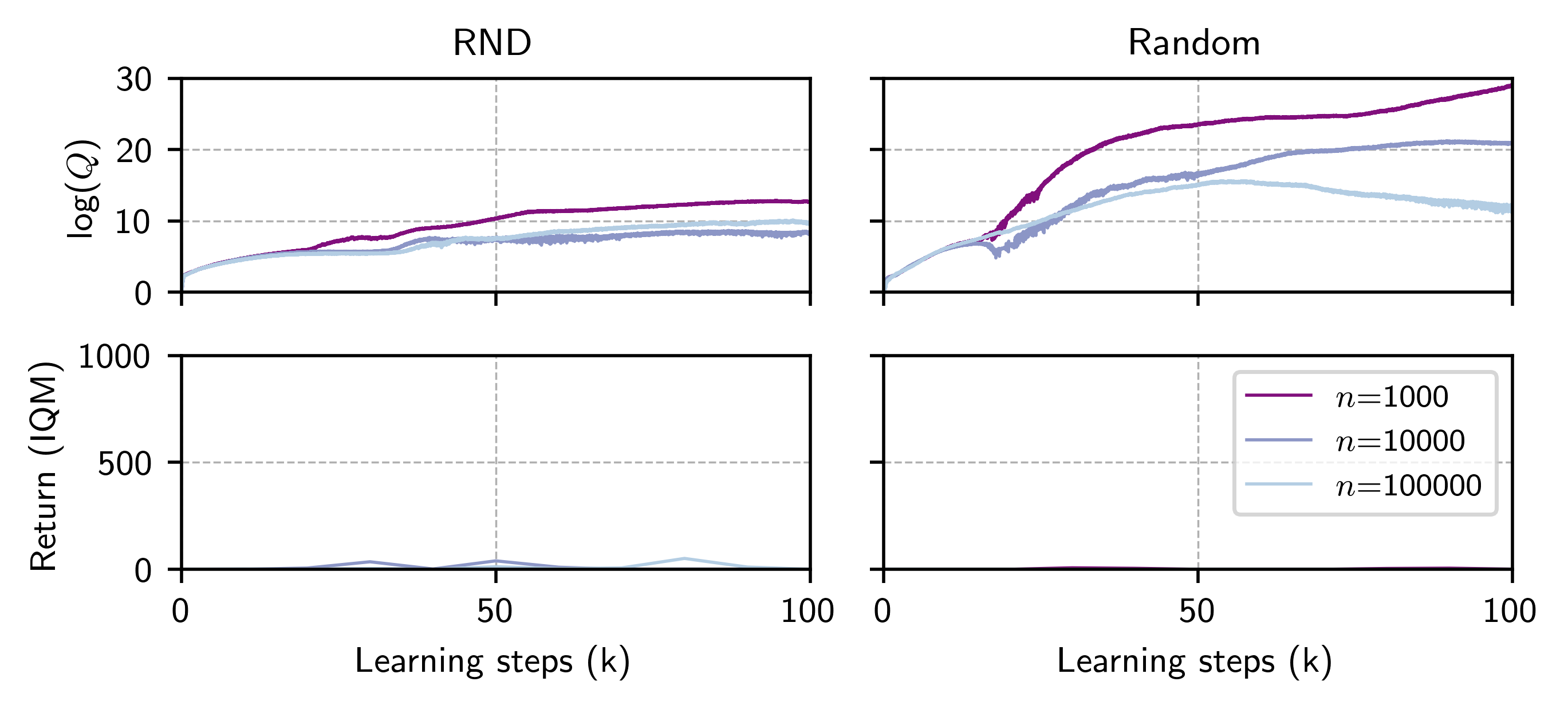
Out-of-distribution Value Overestimation in BFMs


Out-of-distribution Value Overestimation in BFMs


Conservative BFMs
Conservative BFMs
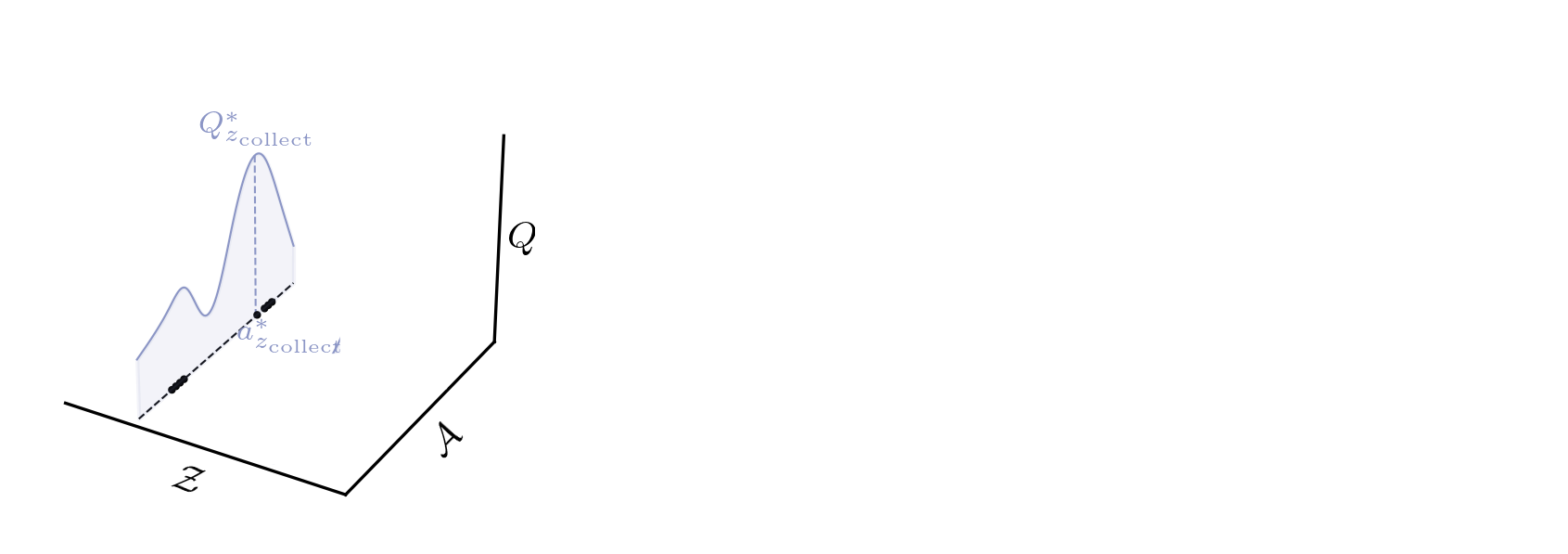
Conservative BFMs
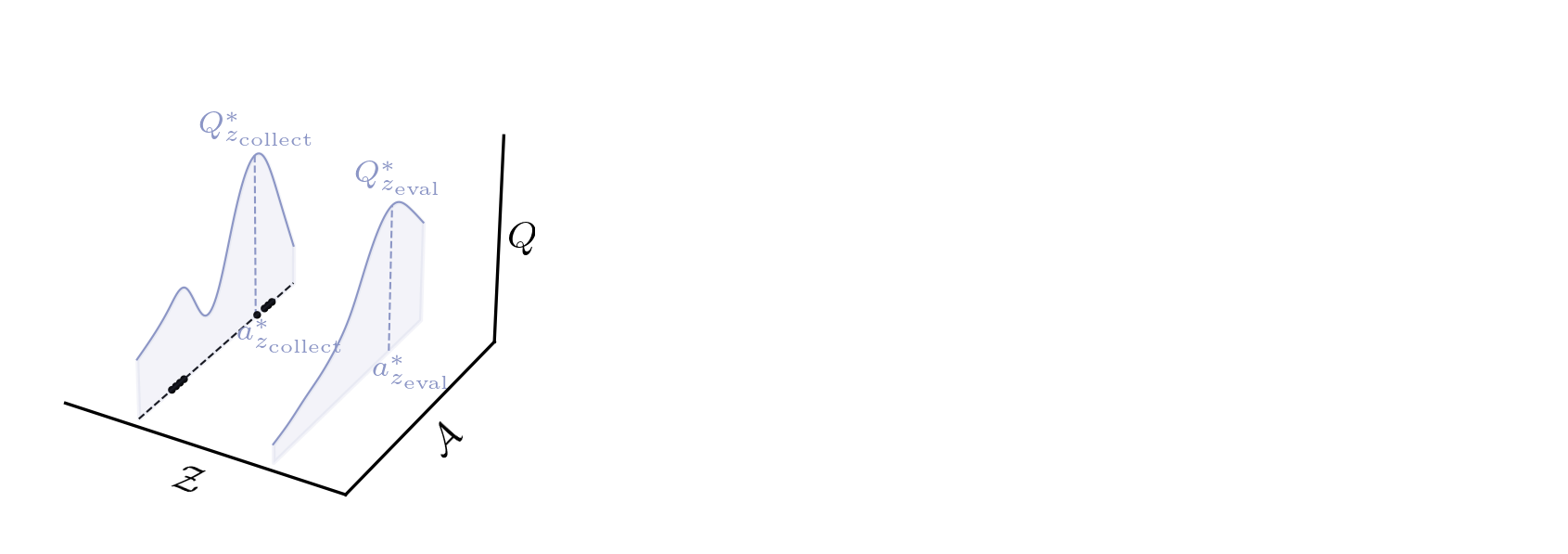
Conservative BFMs
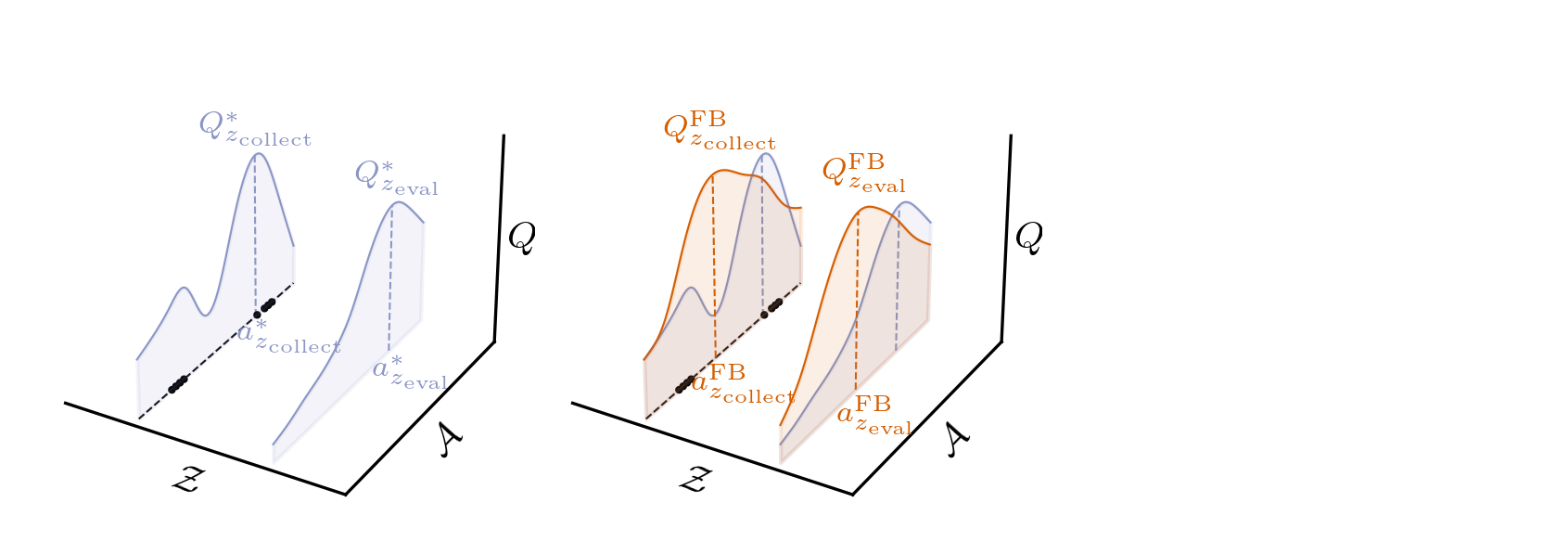
Conservative BFMs
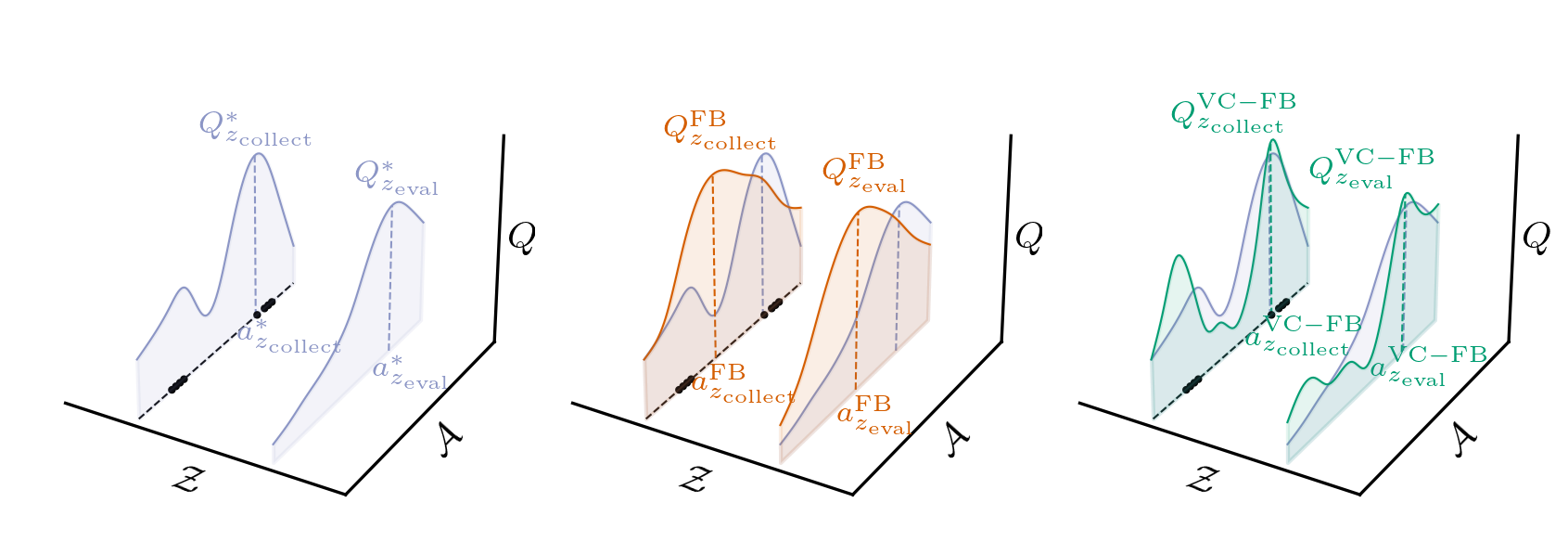


ExORL Results
Baselines
- Zero-shot RL: FB, SF-LAP [5]
- Goal-conditioned RL: GC-IQL [6]
- Offline RL: CQL [7]
Datasets
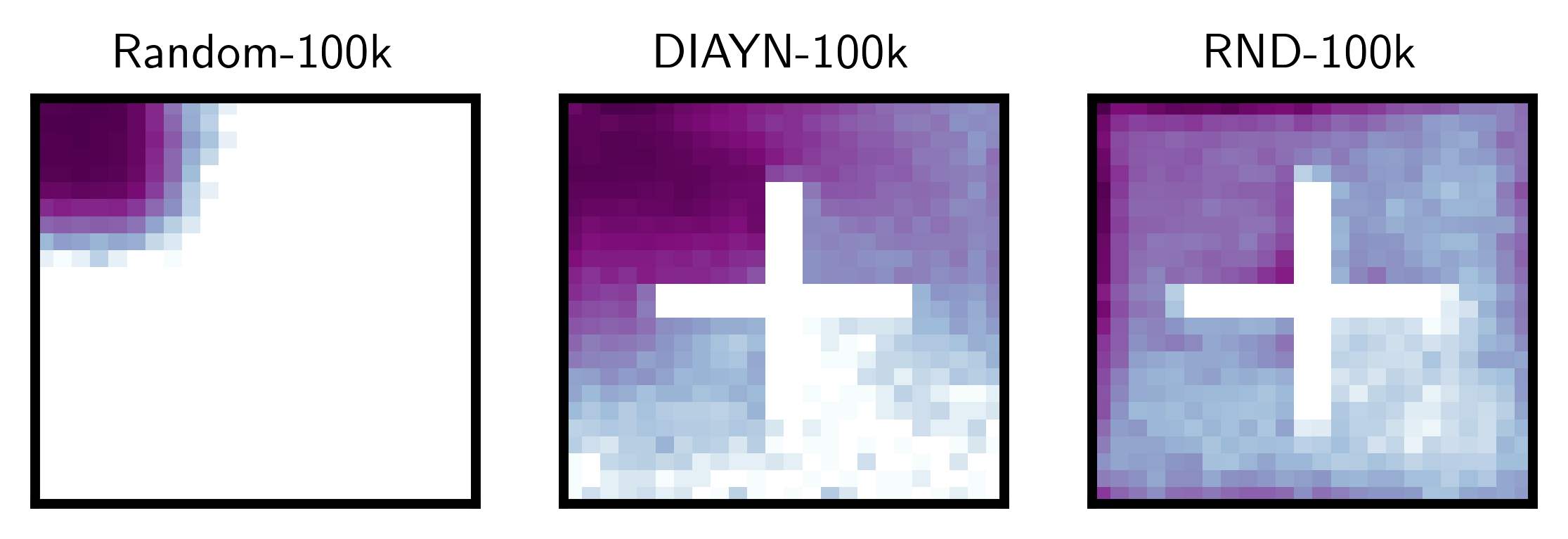
ExORL Results
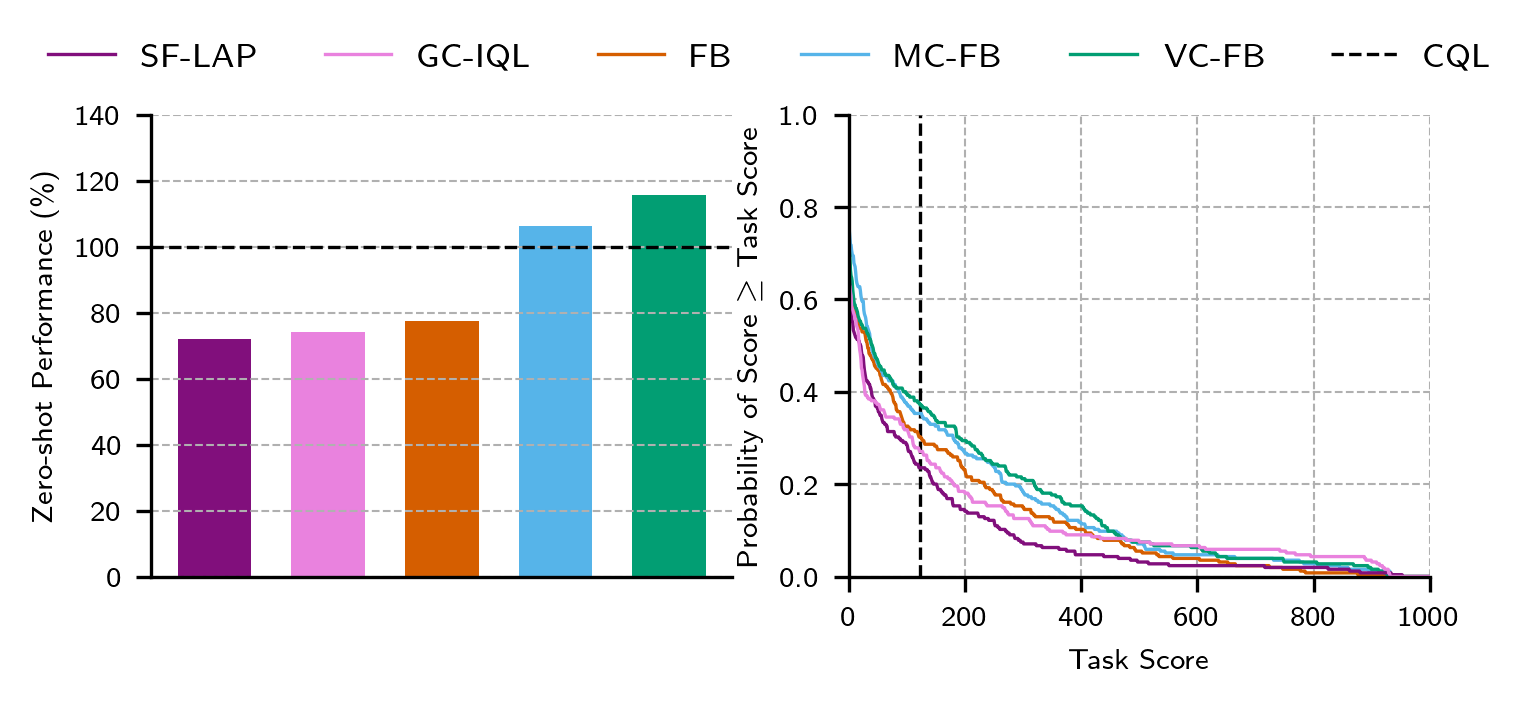
D4RL Results
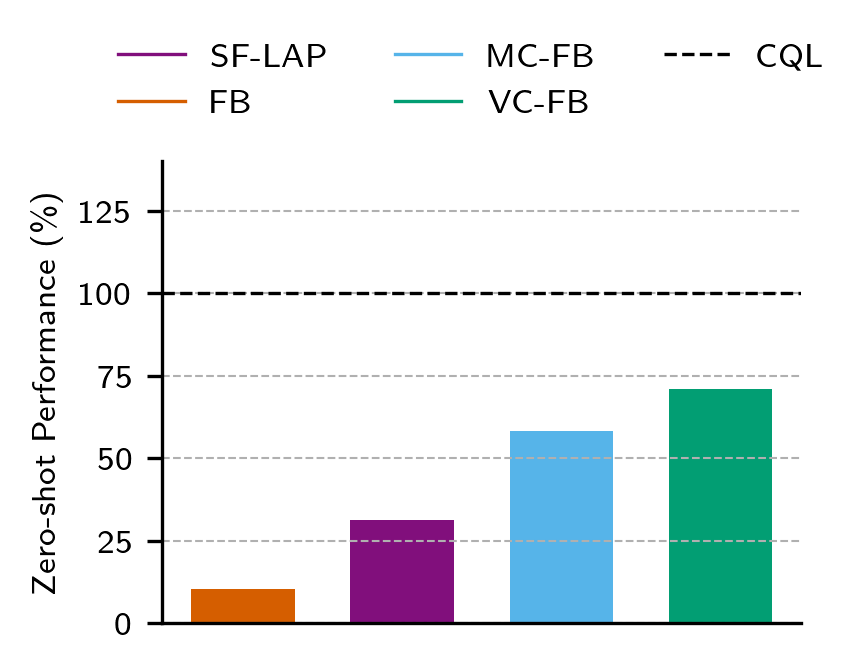
Performance on Idealised Datasets is Unaffected
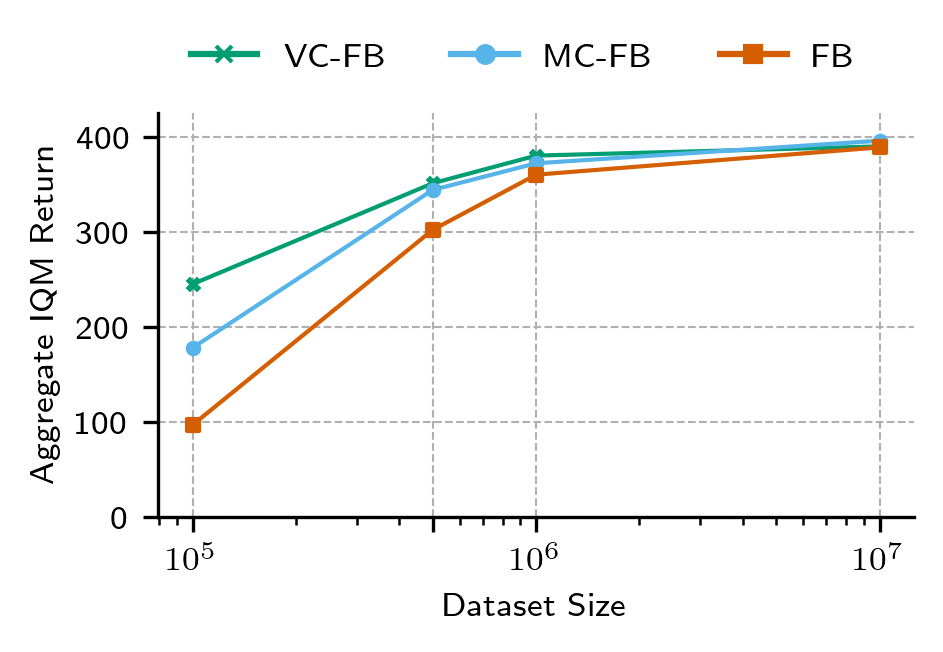

Conclusions
- Like standard offline RL methods, BFMs suffer from the distribution shift
- As a resolution, we introduce Conservative BFMs
- Conservative BFMs considerably outperform standard BFMs on low-quality datasets
- Conservative BFMs do not compromise performance on idealised datasets
